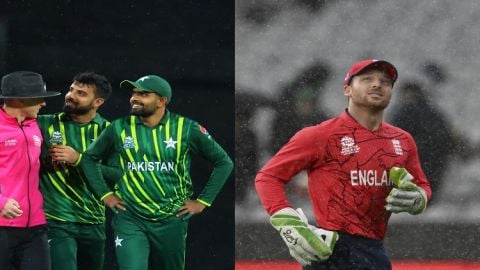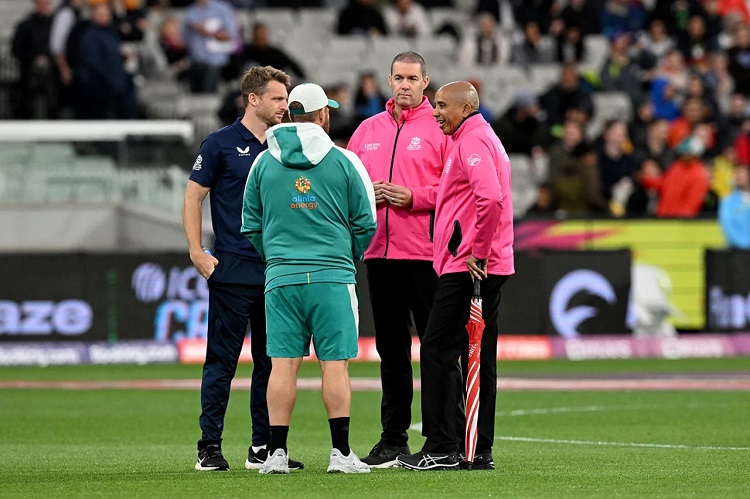
A popular saying goes in sports 'Everyone's a winner'. However, this is exactly what will happen if Melbourne's spring rain interferes with the highly anticipated T20 World Cup 2022 final clash between Pakistan and England on November 13th. For the first time in the history of T20 World Cups, joint winners of the tournament may be announced.
There's a likelihood of the play on Sunday of being washed out as the Bureau of Meteorology has forecasted possible heavy rainfalls, up to 25 mm of rain with chances of a thunderstorm. The forecast for the reserve day (November 14th, Monday) is slightly better with a 95% probability of rain and a chance of a thunderstorm.
Last month, rain interfered in the blockbuster match between Australia and England at MCG, which was wiped out after MCG's famed draining capacity could not handle the 'big wet' month.


